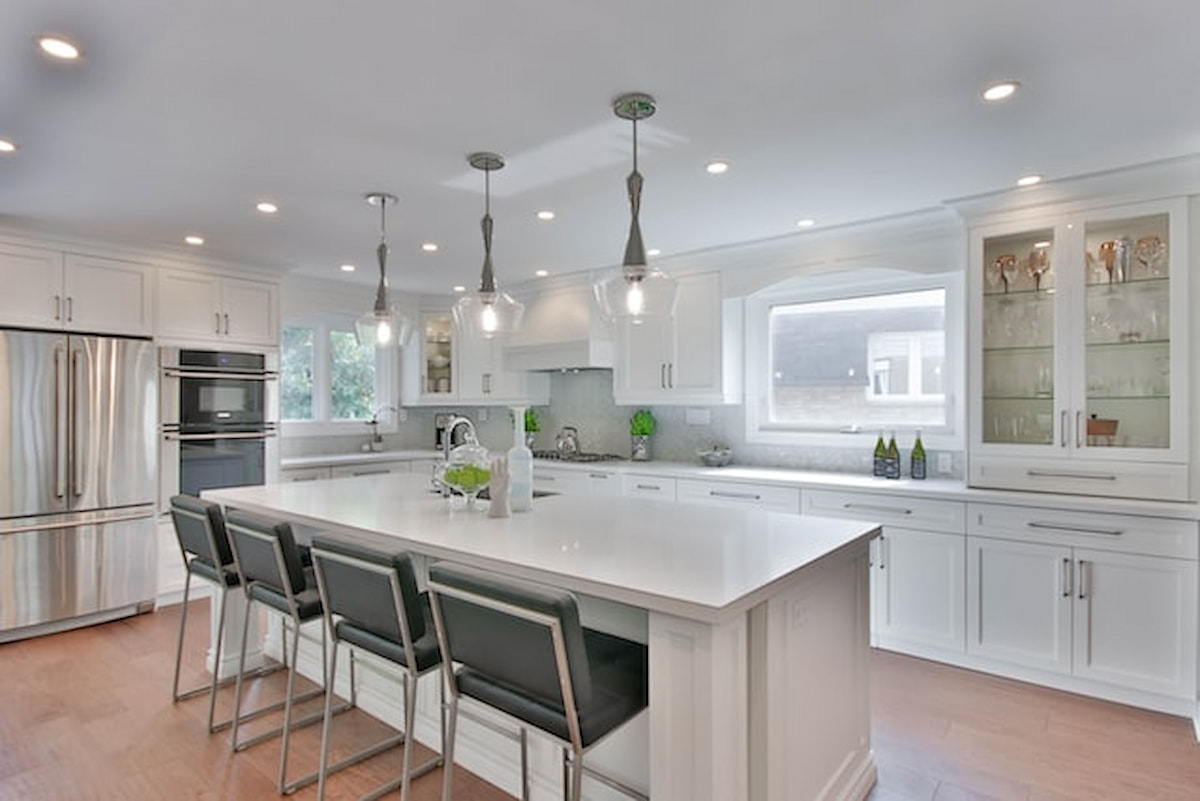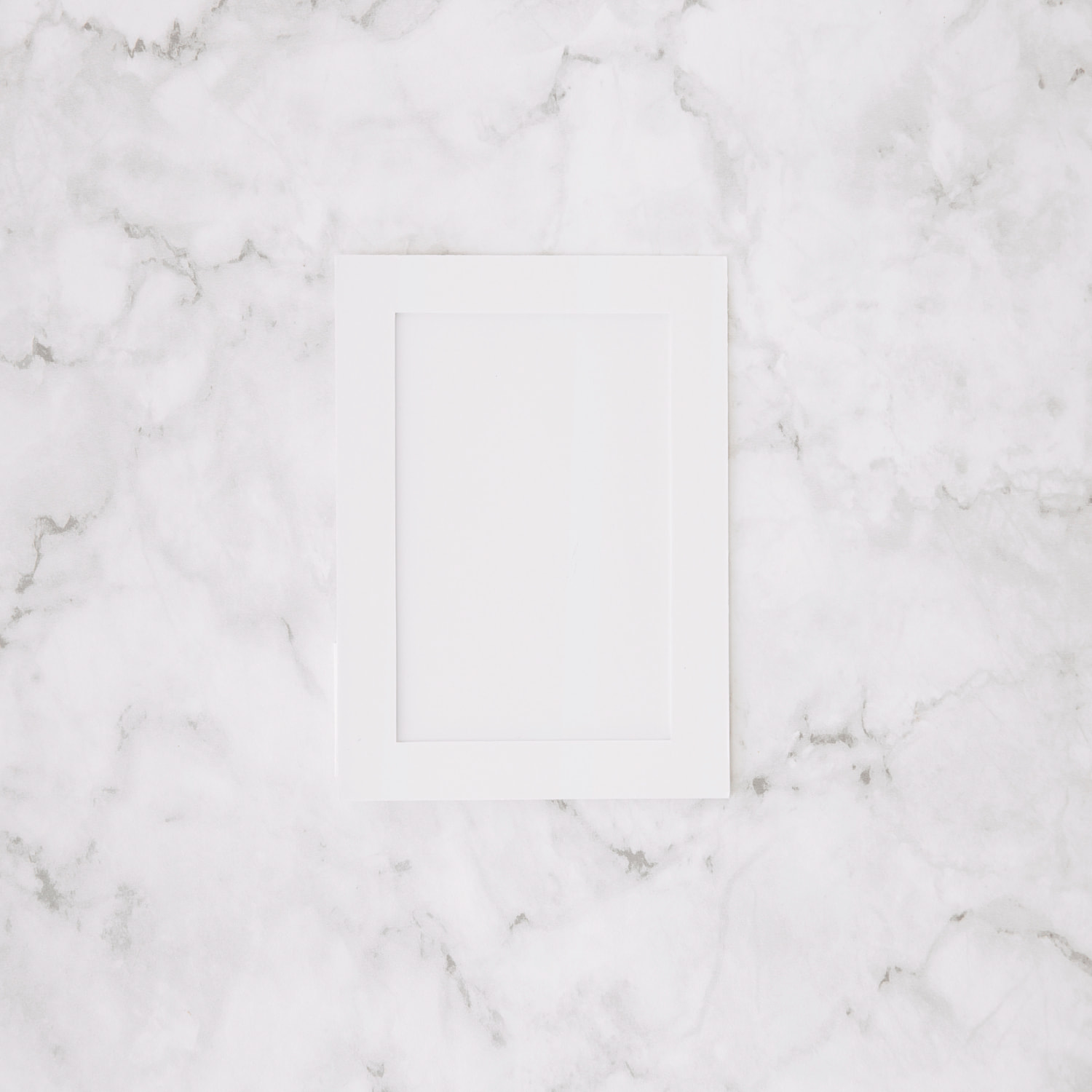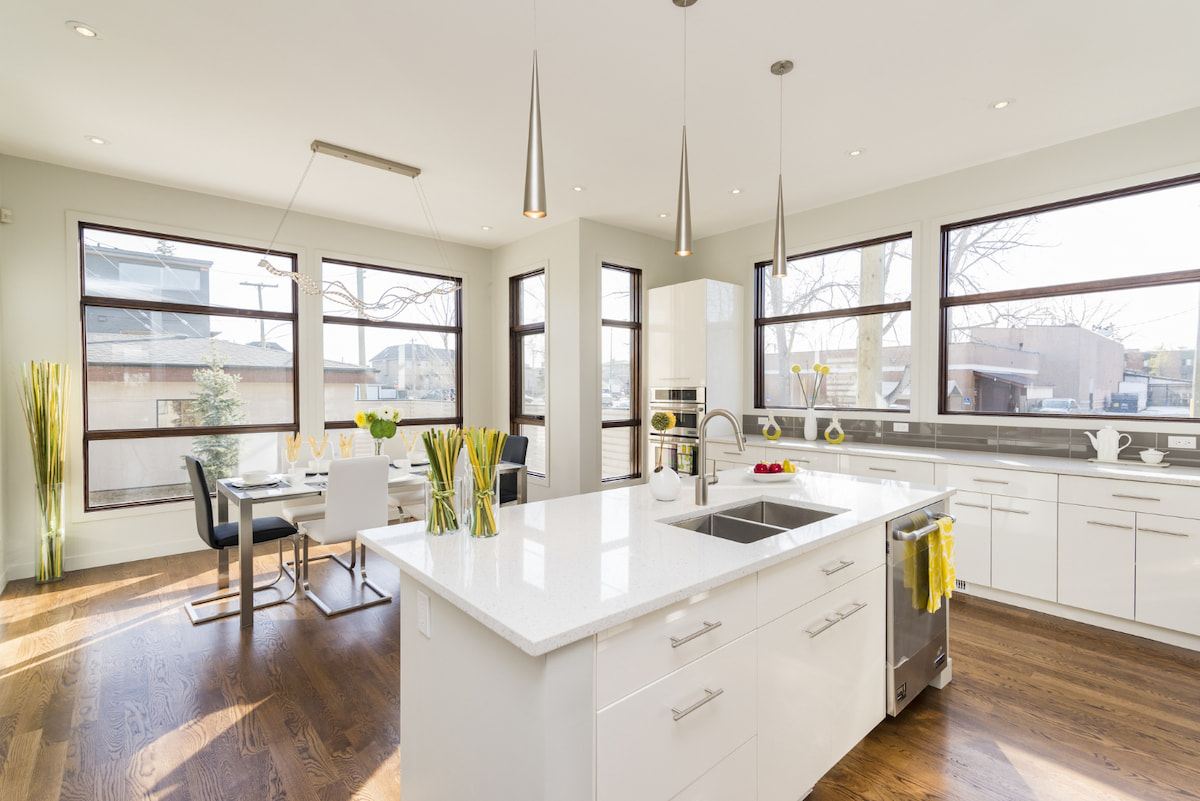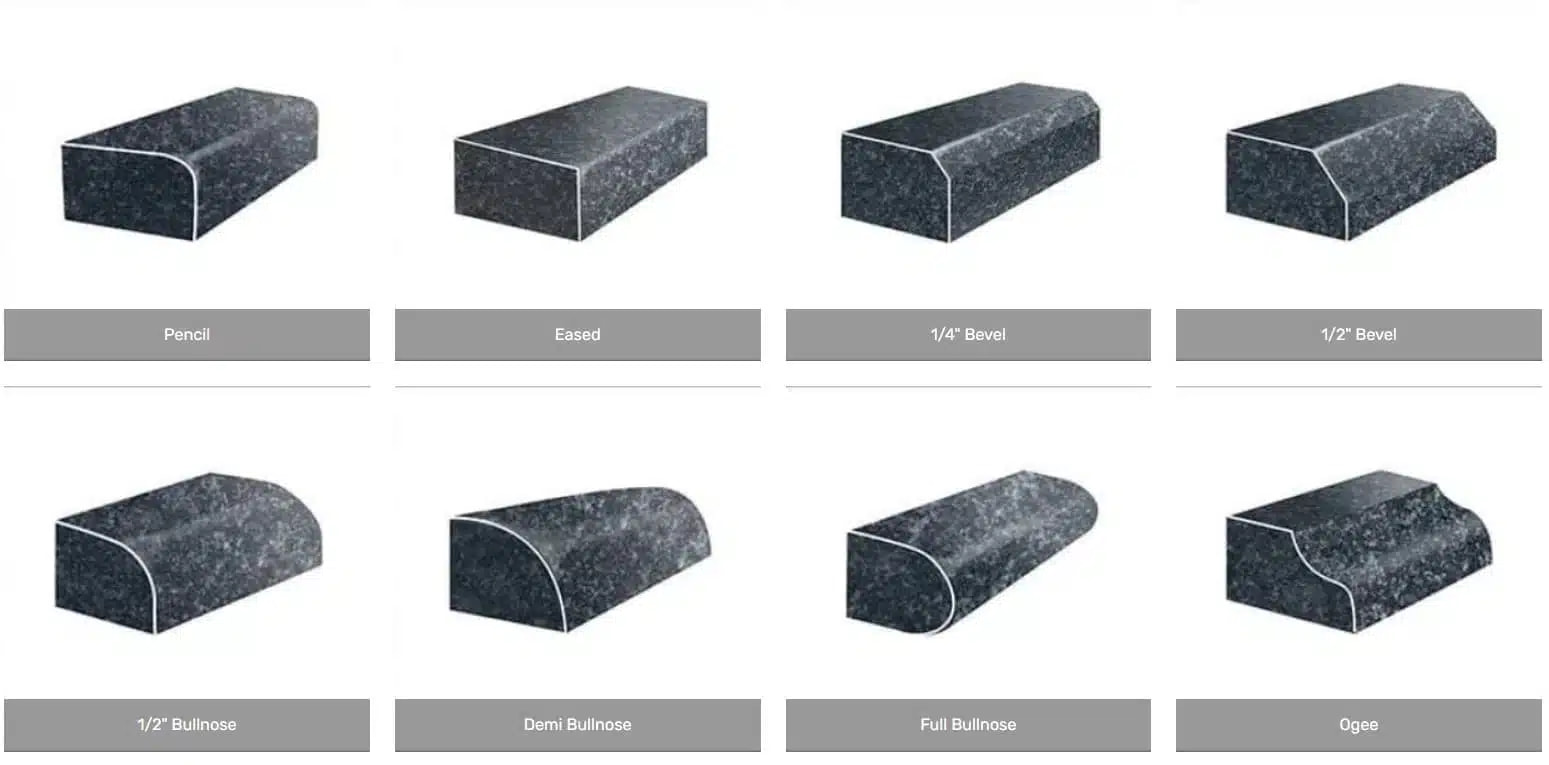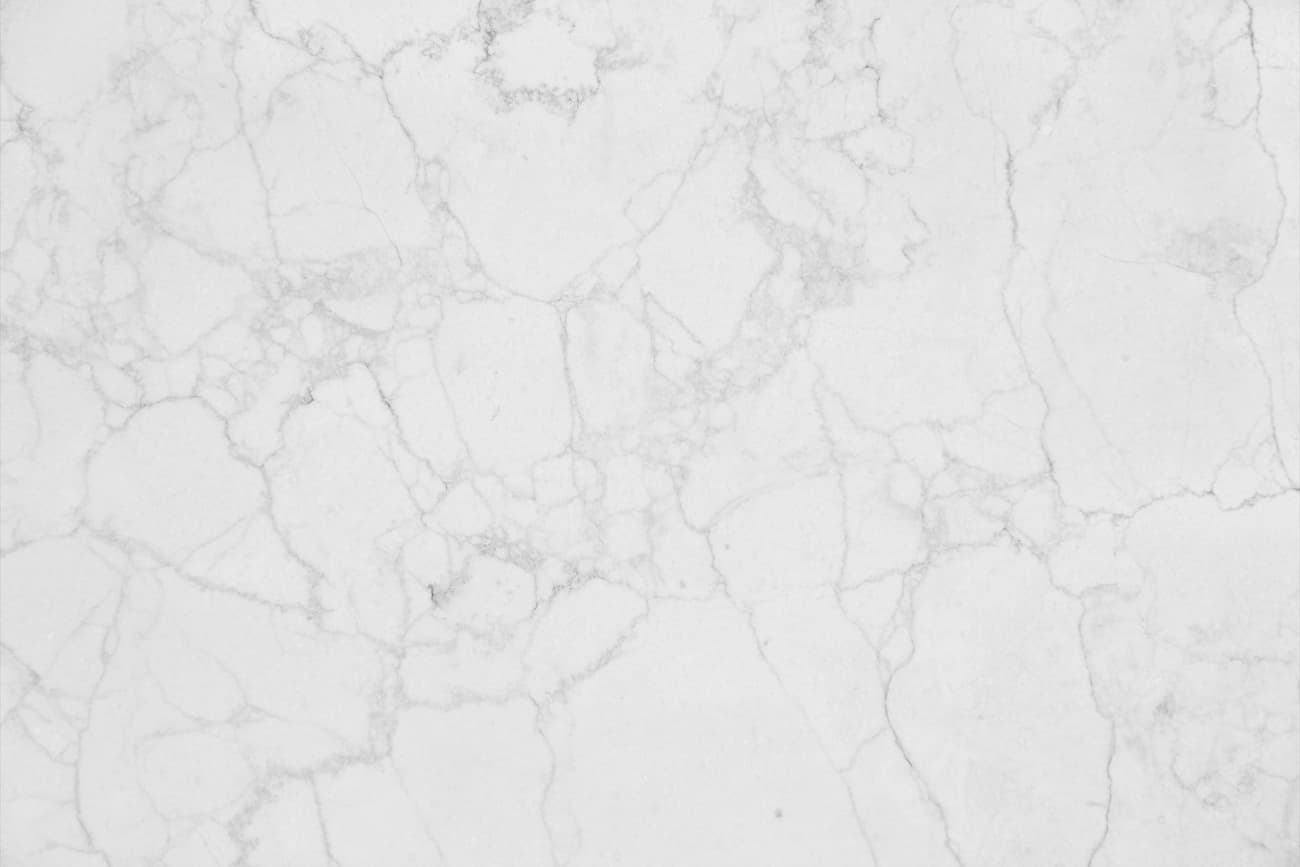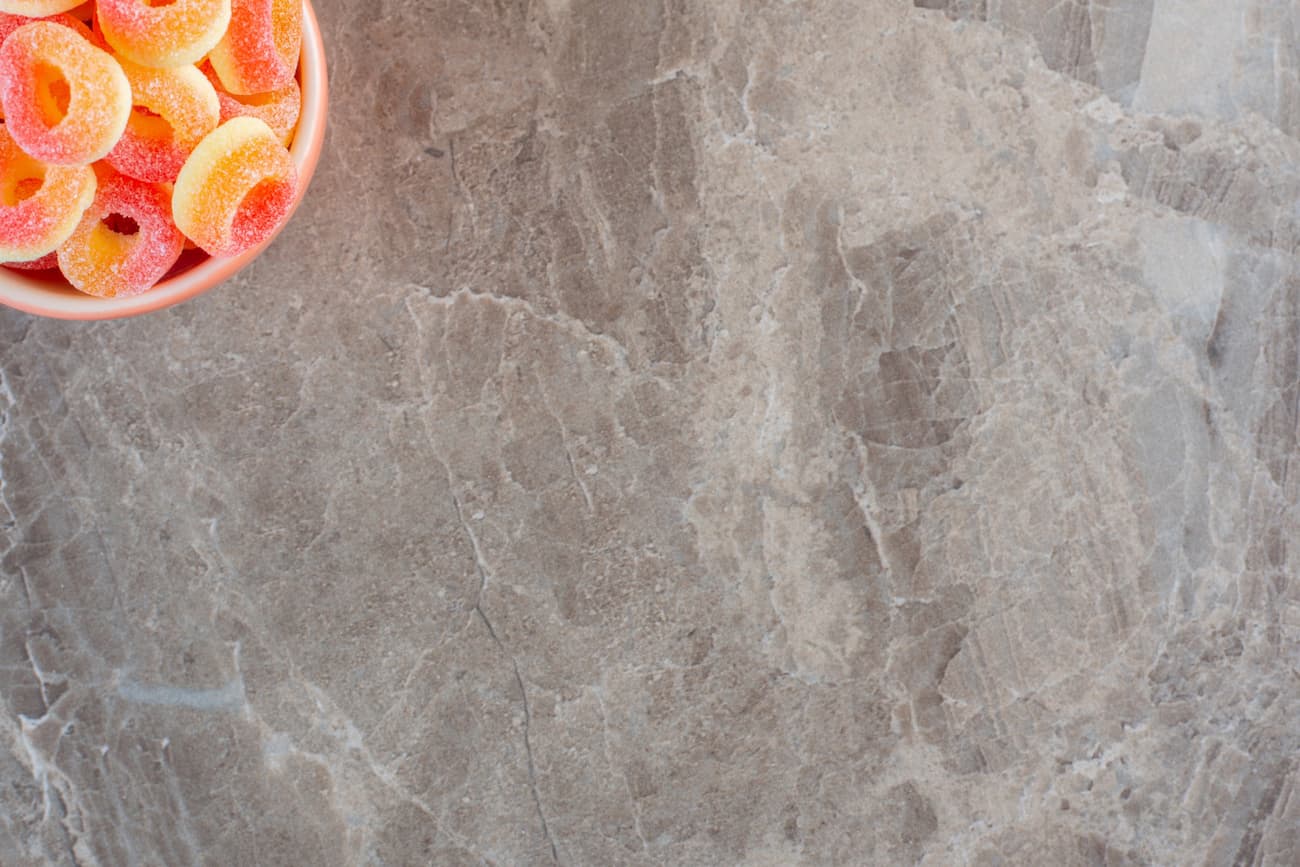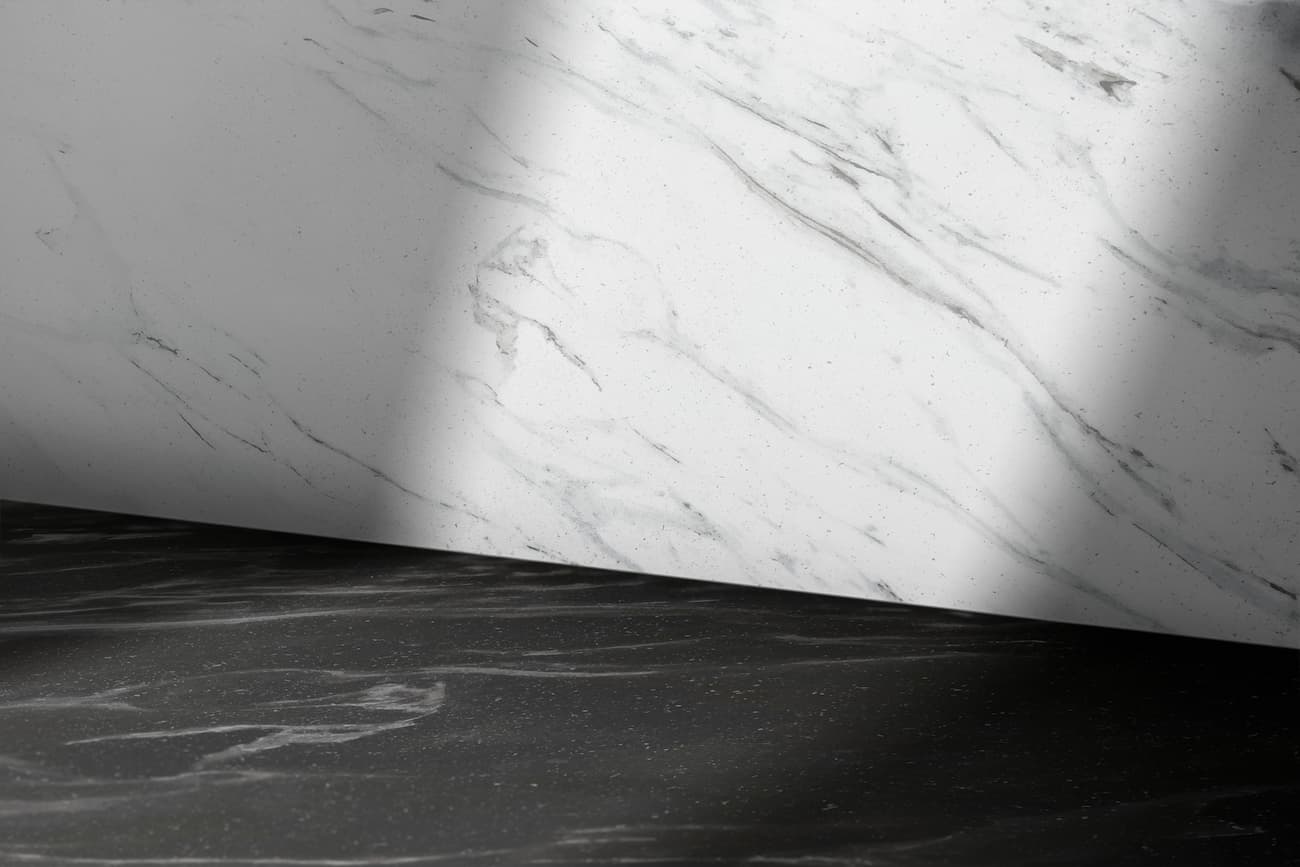The kitchen is the room where you spend most of your time preparing food, and it should be attractive so that you want to cook there. A beautiful kitchen will make different dishes more appealing, whether it’s breakfast or supper.
Designing your kitchen or bathroom can be both nerve-wracking and thrilling. You’ll need to consider which appliances you want, how you want the furniture arranged, what storage solutions will work best, and what color scheme you prefer…
A lot of people think that the only option for countertops is stainless steel, but there are many materials to choose from! Countertops may not be as much fun to pick out as appliances or kitchen cabinets–but they’re just as important.
Table of Contents
ToggleHow to Choose the Right Countertop Material
There are a few things you need to think about before picking the right countertop material for you:
- The look and feel of the material (is it solid enough? Is it resistant to scratches?)
- Is it easy to maintain? Will stains be visible on the surface, even after cleaning?
- How much will this new countertop cost me?
Now that we talked about all these questions let’s take a look at some of the most popular stone and quartz surfaces that can meet all these criteria.
Granite Countertops: A Luxurious and Durable Choice
Natural stone products, like granite, are in high demand because they give off an elegant and luxurious vibe. Another benefit of granite is that it comes in a variety of colors and patterns- making it perfect for those who want to get creative with their design.
In addition to its durability, granite is also resistant to stains, scratches, and heat. Plus, there are even more granite countertop benefits! This material for your kitchen countertop is becoming increasingly popular because it can match any type of design and décor.
Pros:
- Heat is completely resistant to them
- Extremely strong and long-lasting
- Real estate value is boosted
- Available in more than 3000+ colors and varieties
Cons:
- Very costly.
- Not possible to accomplish a do-it-yourself installation
- Strong, but it can shatter if installed incorrectly
- Requires annual sealing to avoid stains
Quartzite Countertops: A Natural Stone with Many Advantages
If you’re looking for a natural stone countertop that is both beautiful and durable, quartzite might be the perfect option for you. Quartzite is hard and non-porous, making it resistant to scratches, staining, and heat. It comes in a variety of colors and can be honed or polished to create a sleek finish. Plus, since it’s installed as one continuous slab, there are no seams that will start to show wear over time.
Due to its durability, quartzite is a great choice for kitchen countertops. It can withstand hot pans and acidic foods without being damaged. Plus, it’s easy to clean with just a damp cloth and some mild soap. Because it is non-porous, there is no need to seal the material like you would with other natural stones such as granite.
Something that many people don’t know about quartzite is that it can be absolutely stunning in kitchens and bathrooms. Since it comes in colors like soft cream and yellow to bolder shades of green and brown, you’re sure to find something perfect for your home. If you want a countertop that will make a statement, go with quartzite. Just keep in mind that because it is such a hard stone, installation requires specific tools and techniques best handled by professionals.
Quartz Countertop That Will Never Go Out of Style
Quartz countertops are made of crushed stone slabs that are mixed with pigments and resin. The final product is a Quartz countertop, which comes in many colors, finishes, and patterns to match your design best. In addition, it is very durable since it does not wear down easily.
Pros
- Quartz slabs are flawless and smooth.
- It’s simple to maintain and does not need to be sealed.
- Quartz countertops may be manufactured to any design and size.
Cons
- Quartz countertops are quite costly.
- They’re extremely hefty so DIY installation may be difficult.
Marble Countertops: The Elegant Choice
Not only is marble an elegant choice for luxurious bathrooms and kitchens, it’s also scratch-proof! You won’t have to stress about accidental damages like scratches or stains if somebody hits your countertop with their leg. And this is just one of the many benefits that come from using marble in your home.
Cut down on clutter and never worry about your countertops again by switching to marble. Not only are they beautiful, but they’re also durable and require no special treatment. Simply wipe them clean with a damp cloth when necessary.
Pros:
- Water and heat resistance.
- Significantly raises the real estate value.
- The beautiful natural stone features veining throughout.
Cons:
- DIY installation is not possible
- Repairing marble is difficult
- Porous, and it must be resealed on a regular basis.
Porcelain Countertops: A Popular Choice
Decades ago, porcelain countertops were established and became more popular as granite and quartz prices gradually increased. The significant benefits of porcelain countertops are that they’re appealing, durable, low maintenance, and reasonably priced.
First appearing in Europe, porcelain countertops and other kitchen remodeling ideas materials are now becoming popular in the United States. The functionality and appearance of this material make it a good choice for many people, especially considering the reasonable cost.
Renovating your kitchen or house is a big decision. You have to think about what kind of materials you want to use and how much it’s going to cost. Porcelain slabs are becoming a popular choice for people who are renovating their homes because they’re affordable and come in many different designs.
Pros:
- Heat Endurance
- Durability and Hardness
- Low Water Absorption
- Easy Maintenance
Cons:
- Easy to Crack
- Edge Styles
- The Cost
Soapstone: A Low-Maintenance and Affordable Countertop Option
If you’re set on having a natural stone countertop but aren’t keen on the price, soapstone may be a suitable alternative for you. This material boasts just as much personality as any other type of stone, with different colors and vein patterns that can produce either warm or cool tones. Additionally, because installing soapstone is less complicated than other stones, it will inevitably save you money in the long run.
Soapstone has been used by sculptors for centuries and is composed mainly of talc. It’s not as hard as other stones, but it makes up for that in density. Soapstone particles are much smaller than those of quartz, marble, or granite, making them easier to clean and more sanitary.
Pros:
- The beauty
- Its environmentally friendly
- Durability
- Heat resistance
Cons:
- Cost
- Limitation of color options
- The texture
- It scratches easily
What to Look for When Choosing a Countertop Material
Countertops are a critical element in any kitchen. They provide space for food preparation and storage and act as an extension of your work area while cooking. By the end of this article, you will know all there is to about countertops so that you can make an informed decision when purchasing them!
Quartz vs. Marble
Quartz countertops are ideal for those wanting to upgrade their kitchen or bathroom. Compared to marble, quartz is less reactive and more durable. Not to mention, it is also resistant to staining and scratching. Plus, it won’t absorb moisture, or liquids like marble will. Compared to other countertop materials, quartz is very easy to take care of. You don’t need to seal it and can use any type of cleaner on it. Plus, because a quart is unlikely to etch or stain, you won’t have been as careful with it in general.
Granite vs. Soapstone
Granite and soapstone are both beautiful kitchen stones. Granite is a strong, long-lasting material that comes in many different colors. Each piece of granite is unique in color and pattern, meaning each one will have its own look. Even though it is very attractive, it’s often used as countertops because of the large range of colors available.
Soapstone is a lovely but soft material that requires extra care. It’s usually found in shades of grey, black, green, white, or blue and sometimes has a rough texture. You can slice or mold it with the right tools if you’re looking for something more specific than its usual shapes. If you spill anything on soapstone, clean it up as soon as possible to avoid staining.
Marble vs. Granite
Although both marble and granite are natural stones, they have several key differences. For instance, granite contains minerals that have been under immense pressure for millions of years, whereas marble is typically formed from limestone undergoing metamorphosis or recrystallization.
The most notable difference between granite and marble is their size and texture. Granite has large grains with a wide variation in colors, whereas marble has smoother texture, with veins running through it that give the appearance of concentrated color throughout.
Though both granite and marble countertops are quite long-lasting, granite is more durable than marble, being able to withstand chips and scratches better. In addition, granite usually has a higher luster than marble. The only downside to granite is that it isn’t recognized as a natural substance like marble, which may be important to individuals who are looking for an eco-friendly product.
Soapstone Countertops vs. Onyx Countertops
Two of the most popular stones for kitchen counters are soapstone and onyx. If you’re unsure about which to choose, consider these factors before making your decision. Both have advantages and drawbacks that you should be aware of before selecting one over the other.
Onyx countertops are the most expensive, and for a good reason. They’re porous and beautiful but not as practical as other natural materials. You have to wear gloves when cutting onyx because it breaks into tiny chips easily. Onyx comes in a variety of pastel hues and designs, making it a richly beautiful stone option for your home – though be warned that it scratches easily and will age quickly.
Onyx countertops, although more expensive, are easier to clean than soapstone. Soapstone is less costly but also softer, making it more susceptible to scratches and chips. In addition, soapstone does a better job at hiding imperfections because of its uniform appearance as opposed to granite or marble. Soapstone has a warm coloration with a cool undertone, making it an ideal way to merge indoors and out. However, soapstone’s warmth is unparalleled and difficult to replicate in other stones like onyx.
Onyx vs. Porcelain Countertops
Although they may look similar, porcelain and onyx countertops have a few crucial differences. For instance, the composition of porcelain mostly consists of kaolinite and silica mineral oxides, which makes it more resilient. Another key difference is that Porcelain is created in furnace-like conditions where intense heat bakes the material until it’s tough enough to withstand very high temperatures without being harmed. Porcelain counters are contemporary and stylish, with a wide range of color choices. Porcelain has some downsides for some people who drop them from a height of fewer than six inches.
The colors of onyx range from light, delicate shades to Robust darker tones. Swirling patterns and designs are prevalent but can also be found in more simplistic forms. Onyx is created when limestone breaks down and reforms creating translucent layers within the stone, giving it the appearance of stripes or having a wave-like design.
Porcelain vs Quartz Countertops
If you’re wondering whether to choose porcelain or quartz for your countertop, then read on. Both materials are popular choices in high-end homes and restaurants, but which one is the best option? Quartz worktops are made from quartz particles held together with resin and polymers. Porcelain counters, on the other hand, are baked at high temperatures to create non-porous surfaces that are safe for contact with food and easy to clean and maintain. One of the main advantages of choosing either porcelain or quartz is that they can be manufactured in large sizes. So if you need a big countertop, either material could be a good choice.
While porcelain is heat resistant and does not fade in sunlight, quartz surfaces are less porous. Some homeowners who want food-safety assurances or have sensitive skin choose quartz over a more delicate surface for this reason.
Worktops made of porcelain or quartz have a significant advantage: because they are manufactured, they can be made to any size. Quartz is held together by resin and polymers, while porcelain finishes are baked at very high temperatures.
Final Advice Before Installing Kitchen Countertops
Being inexperienced with home projects can make deciding on kitchen countertop materials very daunting, as there are so many options to choose from. However, no matter your level of expertise, we recommend hiring professionals as they will be able to install the countertop quickly and correctly.
Not to mention, you should take into account your design inclinations and what aesthetics attract you since kitchen counters impressionistically set the stage for the overall ambiance of your kitchen. All things considered, we sincerely hope that our article assisted you in making a decision about which option suits you best! Break a leg with your project!

